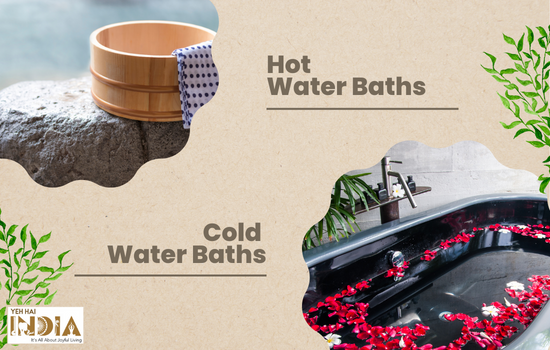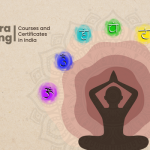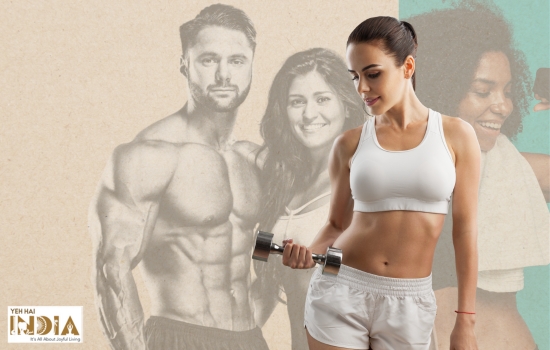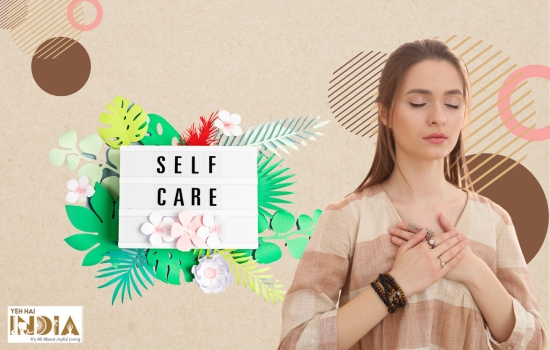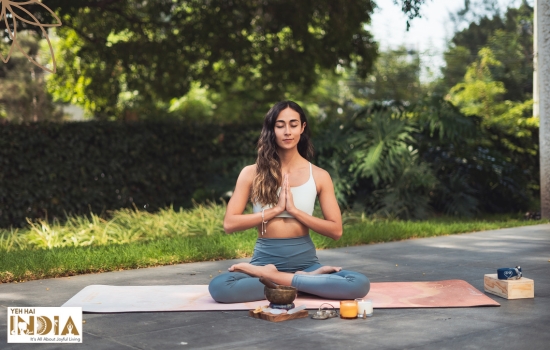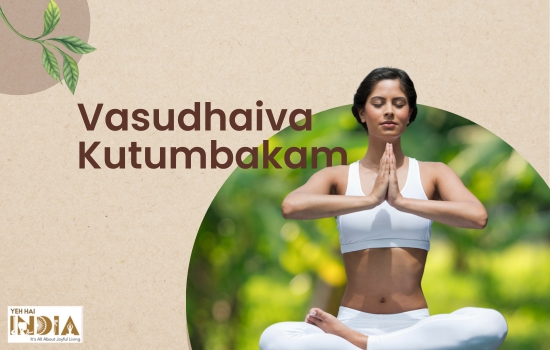Get to know the wondrous effects of these two different types of bathing practices.
A bath, no matter which kind, is the ultimate tool for refreshment at the start or end of a long day.
However, the kind of bath you are taking can have a huge impact on your mood and health. With the help of ayurveda, you can find out which type of bath is best for you.
Hot water baths and cold water baths are popular methods for promoting physical and mental well-being.
Both types of baths have their own unique benefits and can be used to address specific health concerns or to simply relax and unwind.
According to Ayurveda, the ancient Indian system of medicine, hot and cold water baths can be used to balance body doshas, and support overall health and well-being.
In this article, we will explore the benefits and considerations of hot and cold water baths according to Ayurveda, and provide guidance on how to incorporate these practices into a healthy lifestyle.
All About Hot Water Bath
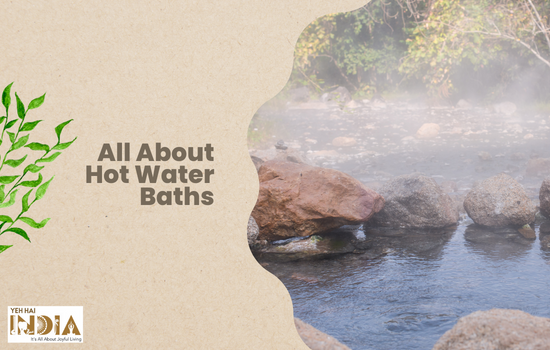
Hot water baths have long been used as a natural remedy to soothe sore muscles, improve circulation, and reduce stress.
Hot water baths can also help to alleviate cold and flu symptoms, such as congestion and muscle aches, and may be especially beneficial for people with Vata imbalance.
Vata is one of the three doshas in Ayurveda, and is associated with the elements of air and space.
People with a predominance of Vata in their constitution tend to be thin, energetic, and creative, but may also be prone to anxiety, dryness, and irregularity.
Hot water baths can help to ground and stabilize body functioning in individuals with Vata imbalance, and can also be helpful for reducing anxiety and improving sleep.
However, it is important to proceed with caution caution when taking hot water baths, as they can cause your skin to dry out and attract several skin issues.
It is generally recommended to keep the temperature of water under moderate levels, and limit the length of the bath to 20-30 minutes.
Addition of nourishing additives, such as Epsom salt or essential oils, to water can help moisturize the skin and provide a relaxing effect to your body.
Recommended Story – Natural Bathing Scrubs: A Secret To Glowing And Youthful Skin
Benefits of Cold Water Baths
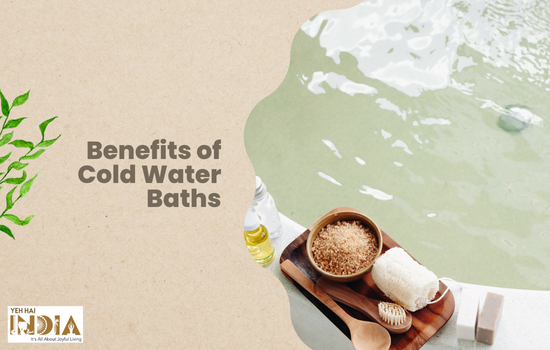
Cold water baths, on the other hand, are believed to have invigorating effects on the body. Cold temperature can help improve circulation, boost immune function, and reduce inflammation and swelling.
In certain instances, cold water baths may also be helpful for improving the appearance of the skin, as they help to tighten and tone skin, and may also be beneficial for people with Pitta dosha.
Pitta is another dosha in Ayurveda, and is associated with the elements of fire and water.
People with a predominance of Pitta in their constitution tend to be passionate, ambitious, and intelligent, but may also be prone to anger, heat, and irritation.
Cold water baths can help to cool and calm the body in individuals with Pitta imbalance, and can also be helpful for reducing stress and improving sleep.
Just like hot water baths, cold water baths should be taken with caution and moderation.
Cold water baths should not be taken for too long, as they can also cause the body to go into shock and lead to hypothermia u der extreme conditions.
It is generally recommended to start with a lukewarm bath and gradually decrease the temperature over the course of the bath, rather than jumping straight into cold water.
Adding skin benefiting ingredients such as such as coconut oil and aloe vera, to water can help moisturize skin and enhance the soothing effects of the bath.
Which one is best for you?
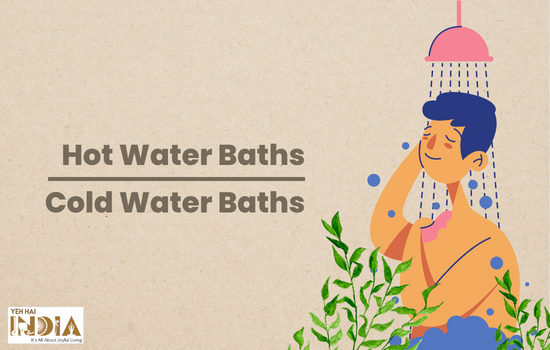
Both hot and cold water baths have their own unique benefits and can be used to address specific health concerns or simply to relax and unwind.
Ultimately, the choice of hot or cold water baths depends on an individual’s needs and body constitution.
For example, hot water baths may be more suitable for individuals with a Vata imbalance, while cold water baths may be more suitable for individuals with Pitta imbalance.
For young children and elderly people, a warm bath is recommended whereas teenagers and other adults are likely to benefit more from a cold water bath.
Cold water baths are considered better early in the morning but hot water baths are ideal for evening time in the evenings which are dominated by the Vata dosha.
Diseases such as indigestion and liver disorders which are caused by an imbalance of the Pitta dosha can be treated with a cold water bath.
On the other hand, diseases caused by an imbalance of Vata dosha or Kapha dosha which include respiratory diseases, arthritis, allergies, joint pain and foot pain can be treated with a hot water bath.
No matter which body constitution you might possess, each type of bath has something in store for you.
Never miss a day without any one of these bathing rituals to stay focused, healthy and relaxed for the entire day.
Also Read – How To Treat Face Puffiness in Winters


